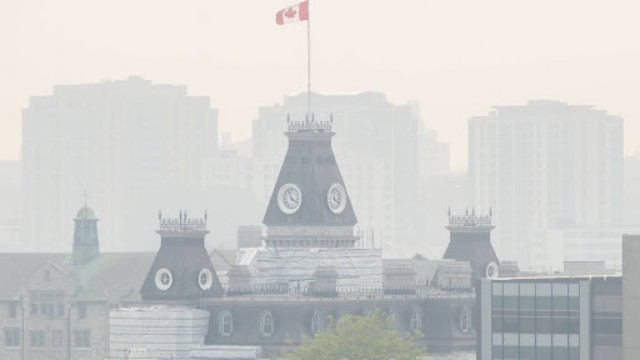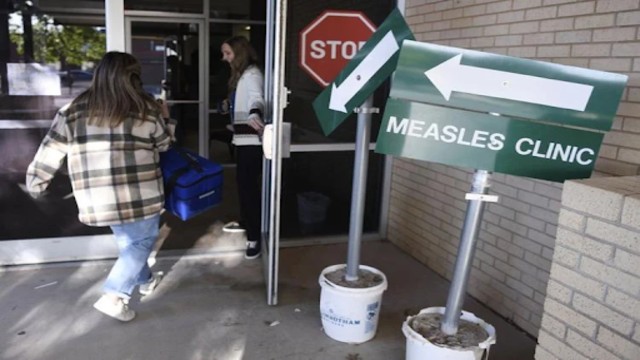
Thick smoke from wildfires in Ontario and Quebec covered the skies over Kingston, Ontario, on Tuesday, June 6, 2023. (Photo: THE CANADIAN PRESS/Lars Hagberg)
Experts Say Awareness and Action Can Help Avoid Hospital Visits
A new study has revealed a striking rise in asthma-related emergency room visits during Ontario's extreme wildfire season in 2023. According to researchers, the spike in ER cases during the early June smoke episode shows how poor air quality directly affects people with asthma, especially those without proper precautions.
The study, published in the Canadian Medical Association Journal, analyzed ER visits from April to July 2023. Researchers found that asthma-related hospital visits jumped by 11 to 24 percent each day during the first heavy smoke wave in early June. Interestingly, during a second smoke wave later that month, there was no similar surge. Scientists believe that growing public awareness and proactive steps taken by individuals helped reduce the impact during the second event.
Dr. Hong Chen, the study’s lead author and a health data expert, explained that protective actions—like staying indoors, using air purifiers, and keeping asthma medication handy—likely played a key role. “People can take meaningful steps to guard themselves and their families from wildfire smoke,” he said. Chen also stressed that no amount of smoke exposure is truly safe, urging people to stay alert even during less severe wildfire seasons.
One Ontario mother, Sheila DeVries, recalled how frightening last summer was for her and her two children, all of whom have asthma. “Our regular medications just weren’t enough,” she said. Her daughter, Peyton, who was nine at the time, had to stay inside all summer, missing out on fun activities like swimming and camping. The family had to depend on inhalers, pills, injections, and air purifiers to manage the situation.
The report also includes a commentary from Sarah Henderson at the BC Centre for Disease Control. She pointed out that wildfire smoke affects the lungs more severely than regular pollution. Its particles are more dangerous due to factors like fire temperature and what exactly is burning. Unlike industrial pollution, wildfires can’t be regulated at the source, making it harder to manage.
Henderson emphasized that while individuals can take protective steps, government action is also crucial. She called for national indoor air quality standards and laws to protect outdoor workers from poor air quality. “It’s not fair to expect everyone to handle it alone,” she said, noting that access to clean air solutions often depends on a person’s financial situation.
As wildfire seasons become more intense, Henderson and others believe both personal and policy-level efforts are needed to reduce harm—especially for people with breathing problems.
Asthma Canada has also shared a list of safety tips. They include checking air quality reports, staying indoors when the air is bad, using HEPA air purifiers, setting air conditioners to recirculate indoor air, wearing an N-95 mask if going outside, and having a clear asthma action plan in place.















